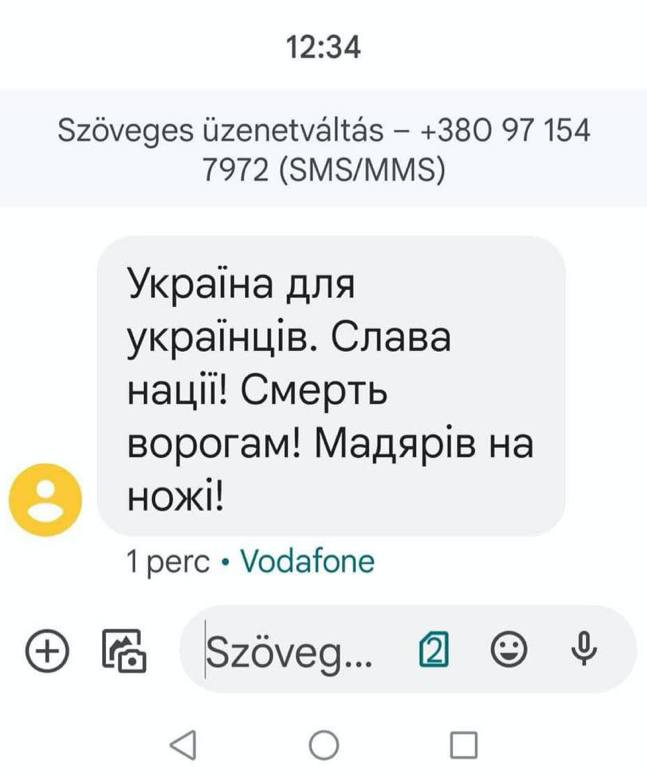Russian disinformation campaign targets Hungarians in Transcarpathia?

Change language:
Yesterday, information started to circulate that through an SMS campaign someone is trying to set people against minorities living in Ukraine. Especially ethnic Hungarians living in the Zakarpattia province and mainly centred around the Berehove region were targeted in the hate campaign.
This is what the messages said: “Ukraine for Ukrainians! Glory to Ukraine! Death to Enemies! To the knife with Hungarians!”
Details about the suspicious messages
Yesterday András Rácz, an expert on Russia, has shared a post in which Dmytro Tuzhanskyi, IFAT’s Think Visegrad fellow from Ukraine was talking about an SMS campaign which has been ongoing for around two days on the date of posting. His post said the following:
“There is a Russian information operation actually going in Ukraine’s Zakarpattia region. The objective is to create the impression that ethnic Hungarians are severely threatened by Ukrainian nationalists.
Yesterday and today a targeted SMS campaign was launched, and messages were sent to plenty of Ukrainian phone numbers in the Zakarpattia region, mostly (but not only) in the Beregove region.”
“How do we know, that this one is a Russian campaign? Of course, there is no absolute certainty at the moment. However, there are two indicators which make it quite likely that this is a disinformation operation connected to Russia.”
The original post listed the reasons as follows:
“First. Such methods with such statements were already used in a number of earlier disinformation campaigns launched through the network of Russian propaganda outlets like Regnum, News-Front, etc.
Second. This information campaign is simultaneously complemented with another one, spreading from Russia, promoting the narrative that Hungarians of Zakarpattia want to secede from Ukraine and join Hungary. This is a very old Russian narrative to provoke and exploit Hungarians and Ukrainians since 2014.

Third. This information campaign is coincided with current debates at EU and NATO level regarding new Russian sanctions and support to Ukraine, especially regarding sanctions of energy supply, “closing sky” and NATO peacekeeping mission.”





